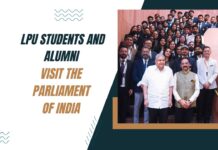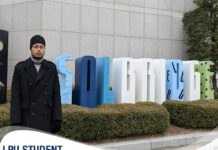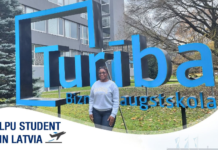Lovely Professional University is sending a team of seven to USA, to compete in the ‘NASA Human Exploration Rover Challenge’. This is an engineering design challenge, to be held at the US Space and Rocket Center Huntsville-Alabama, from March 30th to April 1st, 2017.
120 teams from across the world are to compete in the challenge, of which only four are from India. The LPU team consists of one faculty memeber and six students from different engineering branches including mechanical, electrical, electronics, and computer applications.
The Rover Challenge will involve designing, constructing and testing technologies for mobility devices to perform in space environments. During the competition, the six students on the LPU team will build a completely human-powered, 4 wheel Rover. Two team members (onemale and one male) will then be required to carry the Rover over a half-mile obstacle course. The terrain of the course will be similar to that of Mars with artificially constructed depressions, boulders, ridges, inclines etc. The students will have to carry the unassembled Rover to the starting line, where it will be evaluated for design and safety. The top three winning teams will have then race to assemble their Rovers and carry it over the obstacle course in the shortest possible time.
The LPU team is eagerly looking forward to the competing in this prestigious event, and grateful to the university and their teachers for such international opportunities to test their skills and push their boundaries. Congratulating the team, LPU Chancellor Mr. Ashok Mittal wished them great luck and encouraged them to learn all they could from this exposure to add to LPU’s legacy of research excellence.
LPU researchers are slowly carving a niche for work in fields that benefit the global society. A research team from the university recently won a research grant worth 750,000 Canadian Dollars through the Indo Canadian Impact project from the Dept. of Biotechnology, Govt of India.
LPU also has various industry partnerships with Microsoft, CISCO, Oracle, NSE, EMC2 and others to promote research endeavours. Its engineering students have already designed a Driverless Car, a Solar Family Car, a Hybrid Car able to run on three types of fuel-energies (Petrol, Solar & Electric), the Hexadrone, the Effi-Cycle, and many advanced Mobile Applications.
















